CIA Sponsored Terror, Civil Liberties, Criminalizing Dissent, Cuba, Guantanamo, Habeas Corpus, Human Rights, Military Tribunal, NSA Spying, Political Prisoner, Prison Industry, Prosecution of the Bush Administration, Surveillance, Torture, Uncategorized, War Resister
Podcast: Play in new window | Download
Updates:
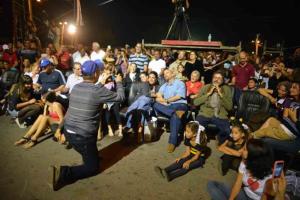
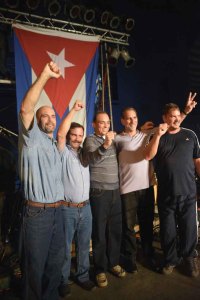
New Cuba-U.S.A. Pact And Remaining Cuban Five Prisoners Released
Attorney Michael Ratner:
- We’ve been covering this case for years on here. They were wrongfully convicted. They had been sent into Miami to stop Miami-Cuban terrorism against Cuba.
- The U.S. in a vindictive prosecution had sentenced them for many years, in fact one of them was sentenced to life in prison for conspiracy to commit espionage I think.
- It’s all part of a larger picture of what’s going on.
- Cuba in what’s not considered an exchange, of course obviously, released Alan Gross.
- Obama within limits sounds like he’s going to open relations within a certain way with Cuba and open an embassy in Cuba and Cuba, one in the United States.
- It’s amazing moment, the revolution took place in 1959, so that’s only 55 years ago approx, the embargo has been in effect since 1961. It’s still in effect of course but this is a really major moment.
- Attorney Len Weinglass would take 1 or 2 cases at a time, work on them like a dog, whether it was Mumia or in this case the Cuban Five and put every piece, every part of his life into it.
——
Attorney Heidi Boghosian:
- In the U.S. we continue to see the news portraying the five as spies when like you said they were really here to uncover unlawful activities on the part of the U.S government.
- They handed over files to the FBI, they were very forthright with the information they gathered.
- We also know from our interviews with attorney Mara Verheyden-Hilliard and Gloria LaRiva that the U.S. has been paying journalists in Miami to report negatively on the case of the Cuban Five and were doing so at the time of their trial.
- One of the lawyers we used to interview on this show and a close friend of ours Lenny Weinglass who passed away a couple of years ago was the main lawyer for the Cuban Five. It then became Martin Garbus who carried on the case in an extraordinary way, and I think that all of their work and all of the work of the Committee to Free the Cuban Five has led to result that I think would have been unforeseeable 20 years ago.
——
Civil Forfeiture Cases Follow Up
Michael Ratner Commends Dean of Columbia Law School Canceling Exams Allowing Option To Protest
International Criminal Court: Possible Prosecutions From U.S. Torture In Afghanistan
Happy Birthday Chelsea Manning
ECCHR Calls For 13 CIA Agents To Be Extradited To Germany
ECCHR Complaint Against Bush Era Architects Of Torture
Attorney Michael Ratner:
- It’s taking the Senate Report they did on detention and going further and saying now we actually have evidence from one of the branches of government admitting that the CIA engaged in this incredibly awful program of torture.
- Wolfgang Kaleck says there are about 500 CIA agents that should be quaking in their boots about traveling to Europe.
——
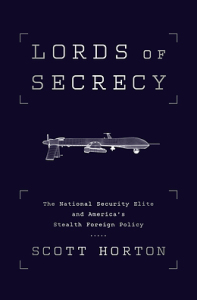
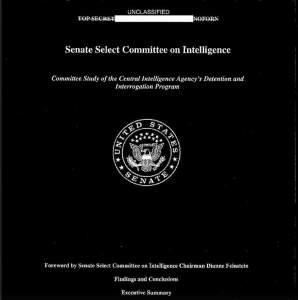
Senate Intelligence Committee Torture Report: Attorney Scott Horton
Guantanamo suicides, CIA interrogation techniques, CIA ordered physicians who violate the Hippocratic oath, are topics of some recent articles by returning guest attorney Scott Horton. Last month, he was on Democracy Now to debate former CIA General Counsel John Rizzo on the question of declassifying a Senate Select Committee on Intelligence report about the agency’s secret detention and interrogation programs. His book Lords of Secrecy The National Security Elite and America’s Stealth Foreign Policy will be published January 2015.
Attorney Scott Horton:
- I think the results flow directly from the media coverage (ABC poll on Torture report)
- Now major publications and broadcasters that hedged using the word torture have stopped doing that. There are only a handful of media sources that won’t do it. NPR being one of them.
- The media also presents roughly twice as much time devoted to people justifying the use of torture techniques to those criticizing it.
- Barack Obama who should lead the push back has gone completely silent. It’s beyond silent he talked about “tortured some folks” making it very casual, and then he said the torturers were patriots.
- I thought it was electrifying reading. 90 percent of it I’ve heard about before and still when you read them in this clinical, plain, highly factual style and things were developed with a continuous flow with lots of background in decision making in Washington at the top and how all this effected what happened on the ground.
- As a consumer of Congressional reports this probably the single most impressive Congressional oversight report I’ve ever seen.
- It’s an excellent example of what the oversight committee should be doing all the time.
- They’re doing this with respect to a program which was essentially or very largely wrapped up by October 2006.
- We’re talking about 8 1/2 years ago.
- They’re only able to do this kind of review in any depth when its historical, not when its real time oversight, that’s disappointing.
- One thing that emerges from looking at these reports and the military reports is that there is a huge black hole which has never been fully developed and explored and that’s JSOC, its the military intelligence side.
- That escaped review within the DOD process and it escaped review in CIA process and its clear that there’s a huge amount there.
- I certainly don’t expect prosecutions to emerge for the next couple of years in the United States, but I see a process setting in that may eventually lead to prosecutions.
- On the one hand we’re seeing a dangerous deterioration in relations with Russia, is an aggressor, which has seized territory in the heart of Europe, is waging a thinly veiled war on one of its neighbors. That is very unnerving to the major NATO powers.
- On the other hand there’s never been a period in the history of the alliance when there is so much upset at the United States.
- That’s come largely from the rise of the surveillance state and the role of the NSA.
- I was looking at this report, and we know that in 2006, there was an internal review that led the CIA to conclude that these interrogation techniques were ineffective and the CIA internally decided to seek a large part of the authority for EIT’s and operation of black sites rescinded.
- Another thing that’s very important here from this report, it tells us that Michael Hayden, George Tenant, Porter Goss and other very senior people at the CIA repeatedly intervened to block any form of punishment of people who are involved with torture and running the black sites.
- That’s important because of the legal document Command Responsibility. The law says when command authority makes a decision not to prosecute and immunize people involved with torture and abuse, that results in the culpability of these crimes migrating up the chain of command.
- I interviewed CIA agents who were involved in this program, and they told me they’ve all been brought out by legal counsels office and told – they may not leave the country.
- That means you’ve got roughly 150 CIA agents, including many people near the top of the agency who can’t travel right now.
- Lords of Secrecy The National Security Elite and America’s Stealth Foreign Policy
Guest – Scott Horton, human rights lawyer and contributing editor to Harper’s Magazine. Scott’s column – No Comment. He graduated Texas Law School in Austin with a JD and was a partner in a large New York law firm, Patterson Belknap Webb & Tyler. His new book Lords of Secrecy The National Security Elite and America’s Stealth Foreign Policy.
————————————————————————-
Civil Liberties, Criminalizing Dissent, Gaza, Habeas Corpus, Human Rights, Military Tribunal, NSA Spying, Political Prisoner, Surveillance, Targeting Muslims, Truth to Power, War Resister
Podcast: Play in new window | Download
Updates:
- RE/MAX Cashes In On Israel’s Illegal Settlements – Code Pink Calls For RE/MAX Boycott Campaign
- US Senate Votes Down USA Freedom Act
- Michael Ratner: President Obama Doesn’t Need Legislation To Stop The NSA, He Can Simply Direct the NSA Not To Collect Meta-Data
—–
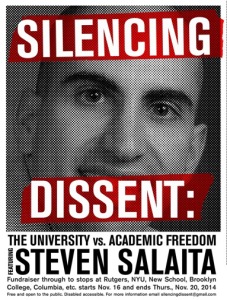
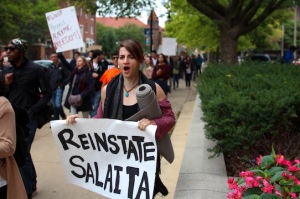
Academic Freedom Case Gains Traction
Since the University of Illinois at Urbana-Champaign Board of Trustees rejected Professor Steven Salaita’s candidacy for a tenured faculty appointment to the American Indian studies program, Salaita has been giving presentations about his case and the importance of academic freedom. Initially we reported here on Law and Disorder that Professor Salaita was un-hired from the American Indian Studies program at the University of Illinois at Urbana-Champaign because of his statements on social media criticizing Israel’s conduct of military operations in Gaza. Emails within the University revealed under Freedom of Information Act Requests show that it was outside pressure from donors that influenced the University of Illinois Chancellor’s decision to dehire Salaita.
Professor Salaita:
- My Dad grew up in Jordan, my Mom in Nicaragua. I grew up in West Virginia.
- I got my undergraduate and Master’s degree from a small regional college in south west Virginia called Radford University and I got my PhD in Native American Studies from the University of Oklahoma.
- My interest in Native American studies developed from a Native American novel course I took in college. It generated a profound interest in the histories of settlement and dispossession in North America which struck me as similar in important ways to the forms of dispossession that Palestinians have suffered in the Middle East.
- I submitted my application in October of 2012. I was offered the job in September of 2013. Signed the contract of October of 2013.
- The contract was countersigned by university officials and it was made formal. At that point it was announced that I had accepted the job.
- The process was nearly 2 years long from submission of the application to the signing of the contract.
- Any search process in the humanities or social sciences starts with a search committee of 4-6 people. They’ll look over a candidate’s cover letter. They’ll examine a candidate’s scholarship and they’ll examine that scholarship in detail.
- Once the search committee has made its selection it has to go to other committees throughout the university. A committee composed of representatives from the college. In my case the college of liberal arts and sciences.
- Because I was coming in with tenure I also had to be vetted by external referees, anywhere from 4 to 6. They basically read all of my scholarship. I had to send them all of my books, all of my scholarly articles, my teaching dossier.
- Given the statements that Israeli leaders have made, “mowing the lawn in Gaza”, “putting the people in Gaza on a diet” and their long standing discourse about demographic threats and a surplus of Palestinians . . . its hard not to think about those statements and debates when Israel carpet bombs an area twice the size of Washington DC land area that’s also home to 1.8 million people – you can’t help but think its a sort of violence informed by something worse than mere military strategy.
- A right-wing website run by (nominally) Tucker Carlson, the bow-tied gentleman formerly of Crossfire. He’s like he came out of a Republican lab. He wears a bow-tie his name is Tucker.
- His website the Daily Caller, ended up publishing a standard right wing hit piece. We’ve seen them all. Salaita, his tweets are horrible, blah, blah, blah, and by the way he’s going to start a job at the University of Illinois.
- Then the local rag in Urbana Champaign, the News Gazette picked up on the Daily Caller story and the controversy gained steam. The next thing I know I’m receiving an unceremonious termination letter from the chancellor.
- She said she didn’t expect trustee approval so there was no need to show up.
- They called me uncivil then it morphed into anti-semitic.
- Uncivil – – It’s a term that’s deeply rooted in colonial violence, that always implies something sinister without ever having to explain its intent or its meaning.
- It’s a wonderful term for shutting down debate. The entire southern hemisphere was colonized based on notions that they were uncivilized.
- The support has been phenomenal. Sixteen departments at the University of Illinois have voted no confidence in the chancellor and the board of trustees.
- I’ve also received support from the Center For Constitutional Rights, the Modern Language Association, a number of trade unions have passed resolutions condemning the university’s decision and demanding my reinstatement.
- The impulse seems to shut down the debate or discussion before it even begins.
- First of all we feel that its a matter of great import to the public interest that the university administration has arbitrarily taken an action that has had negative consequences for the reputation of the university and its ability to function normally.
- As you know the university is undergoing a boycott. It’s normal functions are being disrupted.
- Support Steven Salaita
Guest – Professor Steven Salaita, former associate professor of English at Virginia Tech. He is the author of six books and writes frequently about Arab Americans, Palestine, Indigenous Peoples, and decolonization. His current book project is entitled Images of Arabs and Muslims in the Age of Obama.Steven grew up in Bluefield, Virginia, to a mother from Nicaragua (by way of Palestine) and a father from Madaba, Jordan. Books by Salaita
—-

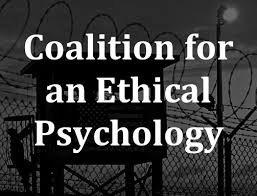
Independent Investigation of APA Ties with Torturers Under Bush Administration
The nation’s largest organization of psychologists is set to conduct an independent review into whether it colluded with or supported the government’s use of torture in the interrogation of prisoners during the Bush administration. In 2011 we reported on health professionals being front and center and complicit in the US policy of torture. The torturers relied heavily on medical opinion. Medical professionals provided sanitizing and rationalization for the infamous torture memos. During water boarding procedures, a doctor would be present. Psychologists were directly involved in the supervision, design and execution of torture at US military and intelligence facilities. This is a violation of state laws and professional ethics. These “health professionals” that were involved with torture still hold their professional licenses to practice.
Dr. Stephen Soldz:
- At this point I think we all know there was a program of torture in the Bush Administration. CIA and the DOD at Guantanamo. Less known was that psychologists were central to it.
- In the CIA, they designed the torture, they were also essential to the legal protection. The Justice Department torture memos basically said that if a health professional, a psychologist or physician is there and says that the interrogation won’t cause severe and long lasting mental harm, than it isn’t torture even if it causes harm.
- In other words, their presence was a get out of jail free card.
- As far as we can see it was central to the Bush Administration’s plans to indemnify themselves while engaging in torture.
- The American Psychological Association apparently worked with the Bush Administration to provide protection for the psychologists who were involved.
- The ethics code had been changed in such a way that it allowed psychologists to disobey the ethics code and follow governmental orders.
- This was actually done before 911 and passed after 911.
- We have been concerned if they (APA) had been complicit in various ways. James Risen from the New York Times just published his new book Pay Any Price and one chapter in there provided direct documentary evidence that APA officials were working with the CIA and the Whitehouse to manipulate the ethics code to apparently allow psychologists to participate.
- Michael Ratner: There was a committee appointed from the APA to look into the APA’s role as I recall . . . Dr Stephen Soldz: . . . to decide on whether psychologists participating in a national security interrogation was ethical – was consistent with the APA’s ethics code.
- They (APA) were not directly involved as far as we know in torture, they were more involved in doing what the CIA and the White House wanted in terms of manipulating ethical understandings.
- We, Amnesty and CCR have called for an independent investigation of the APA for a number of years. We’re glad the APA board has recognized the need.
- They appointed a Chicago attorney who is a specialist in public corruption. We are cautiously optimistic but we have some concerns.
- Its inappropriate for the APA board to appoint its own investigator of whether the APA did something wrong.
- The time frame they gave of 5 months is awfully short for an investigation of this magnitude. We’re hopeful that the investigation will be wide ranging and comprehensive which is what is needed.
- If the accusations in Risen’s book pan out, you have to look at his office (APA CEO) If he knew that means he approved of it. If he didn’t know that means he was incompetent.
- This has been the issue that has divided the APA in the last decade.
- What was most needed by the intelligence community was that it was ethical for the psychologist to participate in the interrogation.
- One of the key people who was in the Bush White House at this time who is implicated is Susan Brandon who is now a top official in Obama’s high value detainee interrogation group.
- If the Republicans win, torture will probably come back.
- Since the Nuremberg trials where Nazi doctors were executed for conducting unethical experiments, informed consent has been the backbone of human subjects research.
- Yet the APA put in this clause – – if laws or institutional regulations (that’s a very broad category institutional regulations) don’t require informed consent and psychologists don’t have to do it.
- If my drug company says I don’t need informed consent . . .there’s no reason why the APA should get rid of informed consent for anything but the most trivial and harmless research.
- They’ve never explained where this comes from and its still in effect.
- Ethicalpsychology.org
Guest – Dr. Stephen Soldz, psychologist, psychoanalyst, and public health researcher in Boston, and was a co-author of PHR’s report Experiments in Torture. He is the Director of the Center for Research, Evaluation, and Program Development at the Boston Graduate School of Psychoanalysis. He was Adjunct Assistant Professor of Psychology (Psychiatry) at Harvard Medical School, and has taught at the University of Massachusetts Boston, Boston College, and Boston University.
———————————————————————————

Please help support Law and Disorder. This radio show is now a sponsored project of Fractured Atlas, a non-profit arts service organization. Contributions for the charitable purposes of Law and Disorder must be made payable to Fractured Atlas only and are tax-deductible to the extent permitted by law. You can donate as little as 5.00 a month.
CIA Sponsored Terror, Civil Liberties, Criminalizing Dissent, Human Rights, Military Tribunal, Political Prisoner, Surveillance, War Resister
Podcast: Play in new window | Download


Civil Liberties Infringement In Wake Of Ebola Panic
The Ebola quarantine protocol in the United States is bringing issues of public health and individual constitutional rights to the front. The Center For Disease Control and Prevention has made clear that the Ebola virus doesn’t become contagious until symptoms appear. Even if symptoms are present, transmission of the disease requires contact with bodily fluids such as blood or vomit. Given this, if you are suspected of having the virus but don’t have any symptoms, can the state to issue a mandatory quarantine?
Attorney Donna Lieberman:
- What we’re seeing is the rush to policies driven instead of by legitimate public health concerns and Ebola is a legitimate serious public health concern, policy driven by fear.
- This is where civil liberties and good medicine go hand in hand.
- Good civil liberty policy is policy that respects individual liberty and does not curtail individual liberty unless there’s a real good reason to do so and there’s no way to protect society without doing so.
- We don’t object to quarantines under all circumstances.
- There are sometimes when the public health requires that society be protected from individuals who are infectious.
- If somebody is not infectious does not pose a danger to society by virtue of their physical condition well then, its unacceptable.
- If they show no signs of infection, that means they’re not contagious, they should not be quarantined, they should simply be monitored.
- Medical people don’t go and risk their lives to treat people who are facing horrific epidemic and then come to infect their friends.
- HIV was an epidemic in the United States, the response to Ebola is based on a tiny handful, a tragic handful to be sure, but a tiny handful of cases and is really way out of proportion and there’s this unspoken fear of related to coming from Africa – here, and it feels as there is a racial component, its just a feeling.
- What’s an appropriate health policy, driven by medicine not by fear?
- Some of the ACLU affiliates are pursuing FOIA requests to find out what policies are in place.
- We are pressing for the state of New York to relax its quarantine policies and make it a public health driven policy rather than a fear based policy.
Guest – Attorney Donna Lieberman, has been executive director of the New York Civil Liberties Union since December 2001. She has also served as the associate director (1988 – 1993) and founder/director of the NYCLU Reproductive Rights Project (1990 – 2000). Under Lieberman’s leadership the NYCLU has expanded the scope and depth of its work, supplementing and strengthening the pursuit of litigation with an aggressive legislative advocacy and a field organizing program that works on behalf of civil liberties and civil rights. As a result, the organization is widely recognized as the state’s leading voice for freedom, justice and equality, advocating for those whose rights and liberties have been denied, especially for those most marginalized by society.
——–
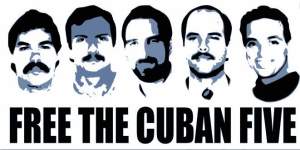
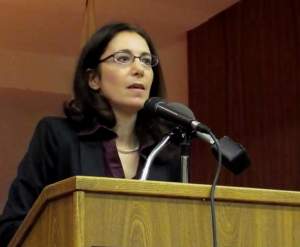
Cuba In The News, The Cuban Five and Exposing Journalists For Hire
Lately, Cuba and its relationship to the United States has been in the news. The New York Times alone had 4 editorials on Cuba. Several urged the reestablishment of diplomatic relations with Cuba which were severed more than 50 years ago. Another urged the prisoner exchange of the Cuban Five now 3, and Alan Gross, the American who has been in a Cuban prison for several years. Last year attorneys with the Partnership for the Civil Justice Fund filed a Freedom of Information Action lawsuit against the U.S. State Department for its refusal to produce responsive materials in its possession about secret payments by the U.S. government to Miami-based journalists who were “reporting” on the Cuban Five case before and during the trial and while the jury deliberated.
Attorney Mara Verheyden-Hilliard:
- The Cuban Five, are five Cuban men who came into the United States to basically learn what the terrorists in Miami were planning. Cuba is a country that has been subject to terrorist attacks for decade after decade.
- There have been bombings, planes shot down. A huge amount of death and destruction but it comes out of the United States from anti-Castro in Miami who are reeking terror on the people of Cuba.
- The U.S government has never taken action to stop these terror attacks that emanate from their shores. In fact the CIA has had been known to have at least some of these people on their payroll or working with them over the years.
- Ultimately, they (Cuban Five) uncovered information which was shared with the FBI, from the Cuban government to the FBI. What happened was the terrorists weren’t arrested, these men were arrested.
- They were charged with espionage offenses, put on trial and found guilty.
- The issue is . . they were tried in Miami, they were tried in this heated environment, tried in conditions that there was no way they could have gotten a fair trial. An issue that has been repeated over and over again in the years of appeals.
- What has been uncovered more recently is that the U.S. government had journalists on their payroll who were presenting themselves as independent journalists in Miami who filled the airwaves and newspapers with extremely hostile and inflammatory coverage of Cuba as well as the trial itself.
- There’s no way this couldn’t have had an impact, on the jury, on the jury pool, on the sitting jury.
- The U.S. government itself is prohibited by the Smith-Mundt Act of 1948 from funding activities to influence and propagandize public opinion.
- We live in a country where we’re free to be wire-tapped, spied on, to have the FBI infiltrating religious institutions and monitoring peaceful protests.
- Prisoner exchange: The fact is the Cuban Five were not attempting to undercut or destabilize the U.S. government. They were simply trying to get information about terrorist attacks emanating from the United States, hurting the people of their country. Alan Gross on the other hand was sent as part of a covert U.S. government operation into Cuba multiple times to material, satellites, phones, communication material, in an attempt to destabilize and over throw the Cuban government.
- We have fought for years with Freedom of Information Act demands and working in partnership with the National Committee to Free the Cuban Five and Gloria LaRiva who has led that organization. She is the key person in the National Committee to Free the Cuban Five that raised this issue, that spent a huge amount of time, going through records, going through the records, audio and visual of the different media, television and radio – and linking these together and doing research into these journalists and establishing what appeared to be this covert operation.
- Much of that material is up on a website called ReportersForHire.org
- Because the State Department was clearly holding material within a certain time period and had not searched their records at all for the material we demanded, we filed a lawsuit in Federal court, and that’s a lawsuit we’re still in the process of litigating.
- The issue of the blockade, which on its face, starving a population to try and force them to change their government is really criminal and a violation of international law.
- Standing on its own without the U.S. blockade, Cuba would thrive.
- Cuba is still there and has withstood and been strong through all of this.
- By lifting the blockade and allowing the U.S. to penetrate into Cuba with American capitalism would be another way of attempting to over throw the government of Cuba.
- A major major funding stream for these groups and these entities in Miami who are working against the people of Cuba and against the government of Cuba.
- US Army Col Lawrence Wilkerson Letter To Obama.
Guest – Mara Verheyden-Hilliard, co-chair of the Guild’s National Mass Defense Committee. co-founder of the Partnership for Civil Justice Fund in Washington, DC, she secured $13.7 million for about 700 of the 2000 IMF/World Bank protesters in Becker, et al. v. District of Columbia, et al., while also winning pledges from the District to improve police training about First Amendment issues. She won $8.25 million for approximately 400 class members in Barham, et al. v. Ramsey, et al. (alleging false arrest at the 2002 IMF/World Bank protests). She served as lead counsel in Mills, et al v. District of Columbia (obtaining a ruling that D.C.’s seizure and interrogation police checkpoint program was unconstitutional); in Bolger, et al. v. District of Columbia (involving targeting of political activists and false arrest by law enforcement based on political affiliation); and in National Council of Arab Americans, et al. v. City of New York, et al. (successfully challenging the city’s efforts to discriminatorily restrict mass assembly in Central Park’s Great Lawn stemming from the 2004 RNC protests.)
——

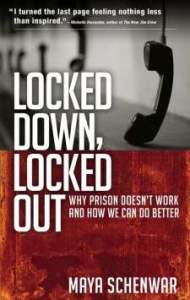
Locked Down, Locked Out: Why Prison Doesn’t Work and How We Can Do Better
In this country there are 2.3 million Americans locked up in prison, and 95 percent of prisoners that are released emerge with very little opportunity to rebuild their lives. Our guest journalist Maya Schenwar has written about the social destruction of the prison industry and the community based initiatives to help former inmates in her book Locked Down, Locked Out: Why Prison Doesn’t Work and How We Can Do Better. Locked Down, Locked Out begins by examining the fundamental crisis of how prison breaks apart families and communities. These experiences relay the enormous damage caused by severing millions of people from family and community ties. In exploring alternatives to incarceration Maya suggests ways to provide resolution to victims while repairing communities of color.
Maya Schenwar:
- It started about ten years ago which was when my sister went to juvenile.
- I had been corresponding with someone on death row, and I had an inclination to write about this issue at the time was really on the margins of journalism.
- When my sister went to juvenile detention and I went to visit her I was immediately struck by the fact that this detention center was a jail.
- Fourteen year olds were being locked up.
- You’re taking people who have already been traumatized and putting them in the most isolating conditions, separating them from society in this way that can’t help create further trauma.
- Prison just doesn’t work. About 2/3 of people who are released from prison are re-arrested in 3 years.
- Instead of talking about the law, we’re going to be talking about the harm that was done to you. A very different thing.
- There needs to be a victim centric approach, something that takes the victim’s healing into consideration.
- Sometimes it gets lost in the conversation about mass incarceration that every single person occupying a prison is a human being and therefore has a constellation of connections with people on the outside when they go in.
- Prison becomes this process of breaking each of those links.
- When you’re communicating with a person in prison, you can’t call them they have to call you. You have no idea when they’ll be able to call you.
- Letters become the only reliable form of communication.
- It comes down to the community level, it comes down to erasing this idea we have that there is a one size fits all solution.
- So many of those problems stem from things we’re depriving people of in our society like housing, food, shelter. We have to think about providing those things as part of creating a society with less harm and less violence.
Guest – Maya Schenwar, is Truthout’s Editor-in-Chief. Her book, Locked Down, Locked Out: Why Prison Doesn’t Work and How We Can Do Better, Berrett-Koehler Publishers. Previously, she was a senior editor and reporter at Truthout, writing on US defense policy, the criminal justice system, campaign politics, and immigration reform. Prior to her work at Truthout, Maya was contributing editor at Punk Planet magazine.
—————————————————————————————

Please help support Law and Disorder, the show is now a sponsored project of Fractured Atlas, a non-profit arts service organization. Contributions for the charitable purposes of Law and Disorder must be made payable to Fractured Atlas only and are tax-deductible to the extent permitted by law.
CIA Sponsored Terror, Civil Liberties, Criminalizing Dissent, Guantanamo, Habeas Corpus, Human Rights, Military Tribunal, Surveillance, Targeting Muslims, Torture, Truth to Power, War Resister
Podcast: Play in new window | Download
Updates:
- Heidi Boghosian Updates Listeners On The Revictimization Relief Act
——
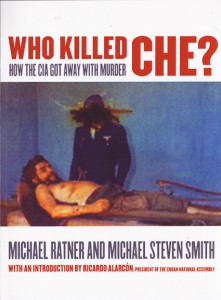

Michael Smith Returns From Argentina Book Tour
Early October marks the 47th anniversary of Ernesto Che Guevarra’s capture and assassination in Bolivia. Co-hosts Michael Ratner and Michael Smith have authored the book Who Killed Che? How The CIA Got Away With Murder. Michael Smith has recently returned from a trip to Buenos Aires to promote the Spanish language version of the book. Michael explains how Che was a threat to the United States by helping Cuba take over their own economy and why its important to set the story straight about Che’s death. Review of Who Killed Che?
—–
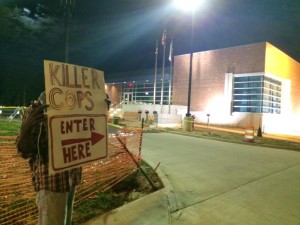
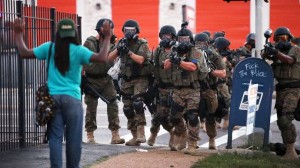
Weekend of Resistance: Ferguson, St. Louis Protests and the National Lawyers Guild
Last weekend, thousands of protesters in Ferguson, Missouri just outside of St. Louis demonstrated during a long planned Weekend of Resistance to the militarized suppression of peaceful demonstrations against the the killings of unarmed black teenagers including Michael Brown two months ago. Demonstrators traveled from cites across the country to participate in protests against police violence – including sit ins and vigil marches. Meanwhile, National Lawyers Guild members have been providing legal support, legal observation and felony representation for people arrested during the weekend. We catch up with St Louis Lawyers Guild member attorney Maggie Ellinger-Locke who has been working long hours representing arrested demonstrators. There are 90 municipalities in St. Louis and Maggie also explains the challenges in helping those arrested get processed through a unique court system.
Attorney Maggie Ellinger-Locke:
- People poured into the streets after the killing of Mike Brown and have pretty much been occupying various locations around the St. Louis area and protesting ever since.
- We at the National Lawyers Guild have mobilized close to 100 legal observers at this point to come down and do the observing and training people who are local.
- We’ve also been connecting people who are facing felony charges with representation as well as backing up the Arch City Defenders who are handling the bulk of the ordinance violations and charges.
- In August there were lots of chemical weapons used, tear gas every night. I was tear gassed multiple times. Other major mobilizations that I’ve been to, they last a couple of days, maybe the duration of a week, but this has been a continued onslaught of less than lethal weapons.
- There are a lot of difference agencies on the ground for law enforcement. There’s the Missouri Highway Patrol, St. Louis County Police Department, The Sheriff’s Department and of course we have 90 different municipalities in St. Louis County, each with its own police force.
- This is what it takes to fight back. People are out there every day on the streets.
- We’ve had NLG members pour in from all over which has really been fun getting to know all these people.
- Monsanto, which is based in Creve Coeur, Missouri, made a donation recently of a million dollars to various community groups doing work on the ground. On the other hand we’ll have a local pizza company board up and then the owner will train a gun on protesters to intimidate them.
- The demands have varied depending on the organizations. Indicting Darren Wilson, the officer who shot Michael Brown is at the top of everyone’s list. In order to achieve that you would have to have demand number 2 met which is that Don McCullough, the St. Louis County prosecuting attorney recuse himself from this case. People think that he’s conflicted in that his father was a white police officer who was shot by an African American man and killed.
- Another big demand is that the many many municipal charges that people are facing be dropped.
- In addition we desperately need reform of our municipal court system. The structure is insane.
- We’re hopeful that if we can demand jury trials for all of those arrested, we may in fact be able to crash the system.
- We have 40 people now who are facing felonies.
- The Organization For Black Struggle and Missourians Organizing for Reform and Empowerment.
Guest – Attorney Maggie Ellinger-Locke, National Lawyers Guild member and activist, and a partner with Ellinger & Assoc., P.C., a Law Firm in O’Fallon, Missouri.
——-
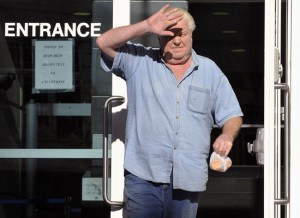
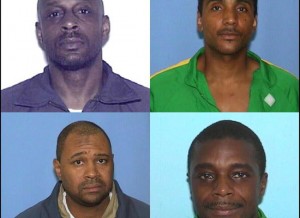
Jon Burge, Torturer of Over 100 Black Men, is Out of Prison After Less Than 4Years
Last week former Chicago police commander Jon Burge who was convicted of lying about torturing more than 100 African-American men at Chicago police stations will be released from the Butner Correctional Institution and reporting to a halfway house in Tampa, Florida. This, as many listeners know is an ongoing story that we’ve been reporting on for many years with Attorney Flint Taylor with the People’s Law Office in Chicago who worked on the case representing some of the torture victims. We talk about why Jon Burge was released and his recent article titled Jon Burge, Torturer of Over 100 Black Men, is Out of Prison After Less Than Four Years. Flint reminds listeners that the total in financial damages to taxpayers from the torture of over 100 black men that Burge oversaw, and the ongoing pension payouts to his collaborating officers, exceeds $120,000,000.
Attorney Flint Taylor:
- Burge is a now notorious police torturer here in Chicago. He shot from detective up to commander of a police station based on torturing African-Americans suspects into giving confessions and sending many of them to death row and to life in prison.
- Ultimately, we were, along with community activists, expose this pattern and practice of 100 cases of police torture.
- This was by electric shock, by bagging people and other kinds of racist brutality.
- We exposed it and nothing happened for many years. Ultimately the Feds, indicted Burge, several years ago, not for torture because the statute of limitations had run on that, but rather for perjury and obstruction of justice.
- He was convicted by a predominantly white jury and ultimately sentenced to 41/2 years in the penitentiary.
- After 31/2 years, he was permitted to go to a halfway house for 6 months.
- What’s happening now? What’s happening with regard to the men who are still in the penitentiary, decades later, and there are almost 20 of them, based on tortured confessions.
- How about the men who testified against Burge, who were his victims?
- Those men, unlike Burge who gets a pension now, and the Illinois Supreme Court has upheld his right, even as a convicted felon to collect that money. These men get nothing, have nothing.
- There are as many as 90 of those men on the streets now, with no health care, with no treatment for psychological damage.
- The majority of city council members support at this point reparations for those men. The reparations for those men would be 20 million dollars.
- The same amount of the money the city spent to defend Burge in the cases of the exonerated men.
- We’re now at a sensitive stage, where the mayor, Emanuel has had to come out. He’s no friend to the anti-torture forces, and he’s been asked repeatedly on this.
- He has played both sides against the middle, its time right now where he’s going to have to fish or cut bait.
- We had the strong support of Karen Louis who was a wonderful challenger and she has now had to withdraw from the (mayoral) race because of “health issues.” She was a strong supporter of the reparations ordinance.
Guest – Attorney G. Flint Taylor, a graduate of Brown University and Northwestern Law School, is a founding partner of the People’s Law Office in Chicago, an office which has been dedicated to litigating civil rights, police violence, government misconduct, and death penalty cases for more than 40 years.
——————————————————————————

Please help support Law and Disorder, the show is now a sponsored project of Fractured Atlas, a non-profit arts service organization. Contributions for the charitable purposes of Law and Disorder must be made payable to Fractured Atlas only and are tax-deductible to the extent permitted by law.
CIA Sponsored Terror, Civil Liberties, Criminalizing Dissent, Gaza, Guantanamo, Habeas Corpus, Human Rights, Military Tribunal, NSA Spying, Political Prisoner, Prosecution of the Bush Administration, Supreme Court, Surveillance, Targeting Muslims, Torture, War Resister
Podcast: Play in new window | Download
Updates:
- Michael Ratner: Moazzam Begg Freed After Terrorism Charges Dropped
- Michael Ratner: 149 Inmates In Guantanamo Bay Prison – 79 Approved For Transfer
——-
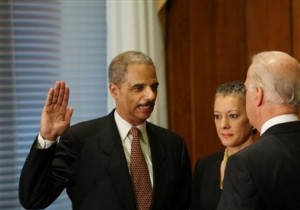

U.S. Attorney General Eric Holder Evaluation
Michael Ratner and Heidi Boghosian draw a balance sheet on the record of U.S. Attorney General Eric Holder.
- Holder approved drone killing of American citizen al-Awlaki without due process.
- Holder failed to prosecute any of the Bush Administration officials who were openly admitted torturers.
- Holder abrogated the responsibility in holding corporate criminals accountable. Wall Street.
- Holder settled with HSBC for 2 billion, the bank was caught laundering money for drug cartels yet no prosecution.
- With-Holder prosecuted whistleblowers, Chelsea Manning, Julian Assange, Edward Snowden, James Risen, Jeremy Hammond, Fox News Reporter,
Law and Disorder Co-host Attorney Heidi Boghosian, executive director of the A.J. Muste Memorial Institute, a nonprofit charitable foundation providing support to the nonviolent movement for social change. Before that she was executive director of the National Lawyers Guild. She is author of the book “Spying on Democracy: Government Surveillance, Corporate Power, and Public Resistance” (City Lights, 2013) as well as several reports on policing and the First Amendment.
Law and Disorder Co-host Attorney Michael Ratner, President Emeritus of the Center for Constitutional Rights (CCR), a non-profit human rights litigation organization based in New York City and president of the European Center for Constitutional and Human Rights (ECCHR) based in Berlin. Ratner and CCR are currently the attorneys in the United States for publishers Julian Assange and Wikileaks. He was co-counsel in representing the Guantanamo Bay detainees in the United States Supreme Court, where, in June 2004, the court decided his clients have the right to test the legality of their detentions in court. Ratner is also a past president of the National Lawyers Guild and the author of numerous books and articles, including the books Who Killed Che? How the CIA Got Away With Murder, The Trial of Donald Rumsfeld: A Prosecution by Book, Against War with Iraq and Guantanamo: What the World Should Know, as well as a textbook on international human rights.
——-
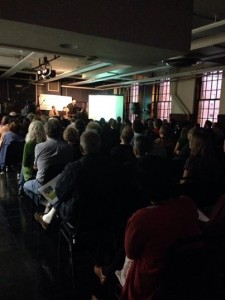

Academic Freedom & Political Dissent: A Conversation with Katherine Franke and the Community
We continue to report on Professor Steven Salaita’s case and the concerns regarding established principles of academic freedom. We hear a presentation by Katherine Franke, Professor of Law at Columbia University. Listeners may recall that Professor Salaita was unhired from the American Indian Studies program at the University of Illinois at Urbana-Champaign because of his statements on social media criticizing Israel’s conduct of military operations in Gaza. We reported last month on Law and Disorder that scholars from law schools around the country came out with a letter condemning the decision of the University of Illinois to unhire Professor Salaita. Katherine Franke discussed Salaita’s case at the University of Illinois at Urbana-Champaign late last month.
Speaker – Katherine Franke, Isidor and Seville Sulzbacher Professor of Law; Director, Center for Gender and Sexuality Law at Columbia University. She was awarded a 2011 Guggenheim Fellowship, and is among the nation’s leading scholars in the area of feminism, sexuality and race. In addition to her scholarly writing on sexual harassment, gender equality, sexual rights, and racial history, she writes regularly for a more popular audience in the Gender and Sexuality Law Blog. Franke is also on the Executive Committee for Columbia’s Institute for Research on Women and Gender, and the Center for Palestine Studies and teaches at a medium security women’s prison in Manhattan. Her legal career began as a civil rights lawyer, first specializing in HIV discrimination cases and then race and sex cases more generally. In the last 25 years she has authored briefs in cases addressing HIV discrimination, forced sterilization, same-sex sexual harassment, gender stereotyping, and transgender discrimination in the Supreme Court and other lower courts.
—————————————————————-

Please help support Law and Disorder, the show is now a sponsored project of Fractured Atlas, a non-profit arts service organization. Contributions for the charitable purposes of Law and Disorder must be made payable to Fractured Atlas only and are tax-deductible to the extent permitted by law.
CIA Sponsored Terror, Civil Liberties, Gaza, Habeas Corpus, Human Rights, Military Tribunal, NSA Spying, Political Prisoner, Surveillance, Targeting Muslims, Torture, Truth to Power, War Resister
Podcast: Play in new window | Download
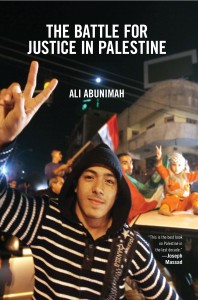
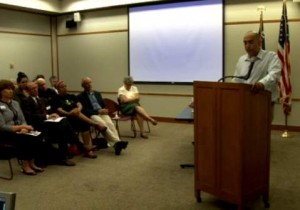
Ali Abunimah On Gaza, His New Book The Battle For Justice in Palestine and Censorship
ElectronicIntifada co-founder Ali Abunimah is the author of new book The Battle For Justice in Palestine. He shares with hosts the recent news of what’s happening in Gaza, the resistance around the world, as well as on campus and in the United States. Ali was scheduled to speak at the Evanston Public Library in early August. The library later sent an email telling him he couldn’t be allowed to speak without an Israeli speaker to ensure balance. Neighbors for Peace an organization of antiwar activists based in the Chicago suburb of Evanston, Illinois who initially brought Abunimah to speak suspected the library’s director was pressured to censor the event. The event was canceled the following day and after some activism and demonstration, the presentation was rescheduled. Ali spoke about his recent book The Battle For Justice In Palestine, the event was packed. Last year at Brooklyn College a similar controversy erupted when Palestinian BDS advocate Omar Barghouti and University of California Berkeley philosopher and BDS supporter Judith Butler we’re scheduled to speak.
Ali Abunimah:
- The situation has gotten considerably worse (in Gaza) over the past year because of the coup in Egypt.
- The current regime in Egypt is very closely aligned with Israel. They’ve made it just impossible for 1.8 million people to live in Gaza.
- The demands from Palestinian civil society is lift the siege, open the crossing, allow farmers to farm, allow fishermen to fish, allow factories to function, allow travelers to travel, students to go to their universities, patients to reach their hospitals, allow medicines to come in, allow books to come in.
- You mentioned my book The Battle for Justice in Palestine. Well, there’s no way to get that book into Gaza.
- It’s also a siege on human contact, culture, education and nourishment. They killed now more than 2000 people in Gaza which is 1 out of every 1000 residents in Gaza.
- Entire families have been wiped out, nobody feels safe. This massacre Israel thought would break people’s will and get them to accept and go back under siege.
- But Israel won’t (lift the siege) it’s a matter of pride for them, it’s a matter of colonial control.
- The most frightening statement about where they’re (Israel) going was made more than 10 years ago. I wrote about this recently in an article called The Gaza Massacre Is The Price of Living In A Jewish State.
- At that time you hearing fantasy about Gaza becoming the new Singapore on the Mediterranean. The Israelis were saying to themselves that Gaza was going to become a giant holding pen for human beings who are not Jewish.
- If we’re going to wait for government to do the right thing or the UN to get its act together, then we’re doomed.
- Despite the multiple levels of complicity by this government in this country, and governments in Europe and the Arab world, something is happening.
- We’re not starting from zero we have a really important and sustained Boycott Divestment and Sanctions movement.
- They’re firing artillery, mortar shells that are designed to be indiscriminate into populated areas of Gaza with the intended consequence of causing widespread destruction.
- We have to go after the weapons manufacturer, we have to after the people who approve these sales from around the world and its because of public pressure that the UK announced last week that they will suspend armed exports to Israel if significant hostilities resume.
- Well now they have resumed, let’s see what they do.
- Look what’s happening just this week, an Israeli cargo ship was prevented from unloading for 4 days in Oakland because solidarity activists and unionized port workers have been working together to prevent that.
- Israel can only maintain its dominance over Palestinians through brute force and use of violence against Palestinians there, and through attempts to suppress debate, suppress political action on behalf of Palestinians in the United States and around the world.
- Mainstream media is more closed to Palestinian voices than what I’ve seen in 20 years. I used to get on CNN, I used to get on MSNBC.
- The librarian let me know that the event was canceled until they could get a pro-Israel speaker.
- There was such an uproar, it was amazing. They did a U-turn pretty quickly.
- As Israel and its apologists lobbies lose control of the narrative, lose control of the politics in this country, there is a more blatant resort to outright repression such as what is going on now at the University of Illinois and other institutions around the country.
- In that chapter I site an organization called the David Project, which is a Zionist group that’s been working for ten years attacking and targeting professors.
Guest – Ali Abunimah, a Palestinian American journalist who has been described as “the leading American proponent of a one-state solution to the Israeli-Palestinian conflict. A resident of Chicago who contributes regularly to such publications as The Chicago Tribune and The Los Angeles Times, he has also served as the Vice-President on the Board of Directors of the Arab American Action Network, is a fellow at the Palestine Center, and is co-founder of The Electronic Intifada.
———
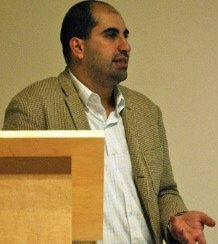
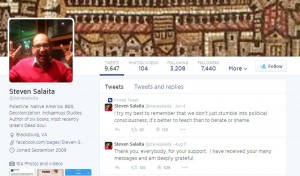
Top Legal Scholars Decry Chilling Effect of Dehiring Professor Steven Salaita
The University of Illinois has rescinded the job offer of the professor who wrote controversial social media posts about the war in Gaza. Professor Steven Salaita was essentially dehired from the American Indian Studies program at the University of Illinois at Urbana-Champaign because of his statements on social media criticizing Israel’s conduct of military operations in Gaza. This has raised serious concerns under established principles of academic freedom. Those principles are enshrined in Illinois law, in the U.S. Constitution, and in the written principles of the American Association of University Professors. Recently, scholars from law schools at Columbia, Cornell, Berkeley, Georgetown, and other universities have come out with a very strong letter condemning the decision of the University of Illinois to dehire Steven Salaita. Read letter here.
Professor Katherine Franke:
- Professor Salaita was made a tenured offer of appointment at the University of Illinois in their American Indian studies program last year. He accepted it and negotiated the terms of the offer. Then during the most recent assault on Gaza, he was active on twitter expressing his views on the Middle East and colonialism.
- The University of Illinois came under a tremendous amount of pressure to revoke the offer of employment to Professor Salaita.
- The offer wasn’t finalized, there’s usually a rubber stamp process where the department and the head of the university have to take appointment to the Board of Trustees.
- The chancellor of the university Phyllis Wise informed Professor Salaita that she would not be bringing his appointment to the Board of Trustees and was unwilling to finalize his appointment.
- He had already resigned his position at Virgina Tech and was getting ready to move. He’s a well known scholar, not only of American Indian studies but of colonialism more generally and has connected up the struggle for sovereignty and analysis of genocide and occupation in the United States to the struggles that the Palestinians have suffered in the Middle East.
- He certainly didn’t depart from views he expressed before but I think they, in the heat of the moment of this recent assault on Gaza, the university basically buckled and withdrew the offer, and he’s now without a job and an income.
- It’s because of his speech on the issue of war crimes that may have been committed by Israel in the assault on Gaza.
- His tweets have been rather even across the board I think in terms of criticizing the critics of Israel when they’ve overstepped but also criticizing Israel itself.
- He’s a fiery guy with strong opinions and rigorous academic critiques of colonialism and colonial violence.
- I thought it would be useful to add constitutional and legal analysis of the problem, situated historically in threats to free speech on campus. I drafted a letter for Constitutional law professors, not in which they would agree to boycott universities . . . more offering a constitutional analysis of retaliation against unpopular speech.
- The law in this area has been made by faculty and sometimes students.
- I brought it back to Urbana-Champaign and their own history of threats to free speech both during the McCarthy period when bills were introduced in Springfield to punish or purge people who had back then what they call Communist sympathies when working in public universities. In 1960, there was a professor in the biology department at Urbana-Champaign that had written and spoke about human sexuality and premarital sex, and had actually endorsed premarital sex.
- There are a couple of principles that are at stake here, one has to do with the state punishing any citizen for speaking on an unpopular topic and particularly punishing for the viewpoint they take.
- There’s another faculty member at the University of Illinois Kerry Nelson who has been a rather enthusiastic advocate of Israel’s right to attack Gaza. He said things that are quite inflammatory, he’s not been fired. He’s not been punished for the positions he’s taken on the Middle East.
- Viewpoint discrimination, that’s the first point. The second point is academic freedom. Universities are the primary bastion of protection. A domain where we protect the pursuit of unpopular ideas, controversial ideas, of ideas that might even be frightening.
- That is the commitment that we make as part of the academic endeavor. The point of that concept of academic freedom is that we don’t want to have a kind of orthodoxy or an official version of the truth.
- Dr. Wise comes out of a somewhat corporate background. She, I think is the poster woman if you will for the executive that is now leading universities and thinks of universities as a business.
- The presidents are making an economic calculation, that they can pay off someone like Salaita and satisfy their donors.
- We can’t just agree to do nothing which what a boycott is. In a way it’s the easiest thing to do.
- I would say I have a lot of faith in students.
Guest – Katherine Franke, Isidor and Seville Sulzbacher Professor of Law; Director, Center for Gender and Sexuality Law at Columbia University. She was awarded a 2011 Guggenheim Fellowship, and is among the nation’s leading scholars in the area of feminism, sexuality and race. In addition to her scholarly writing on sexual harassment, gender equality, sexual rights, and racial history, she writes regularly for a more popular audience in the Gender and Sexuality Law Blog. Franke is also on the Executive Committee for Columbia’s Institute for Research on Women and Gender, and the Center for Palestine Studies and teaches at a medium security women’s prison in Manhattan. Her legal career began as a civil rights lawyer, first specializing in HIV discrimination cases and then race and sex cases more generally. In the last 25 years she has authored briefs in cases addressing HIV discrimination, forced sterilization, same-sex sexual harassment, gender stereotyping, and transgender discrimination in the Supreme Court and other lower courts.
——
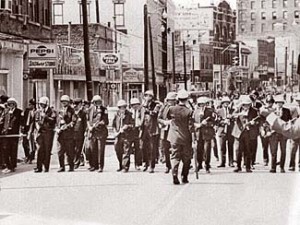
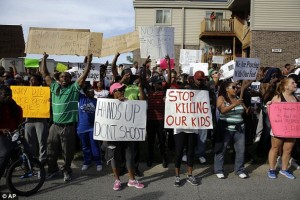
History Of Police Brutality And The Militarization of Local Law Enforcement
In the days since the uproar over the police shooting and killing of unarmed teenager Michael Brown, state and local law enforcement have been cycling through different approaches demonstrators in Ferguson, Missouri. They rolled out armored vehicles, while police in riot gear deployed tear gas, stun grenades and shotguns. Another decision permitted the Missouri State Highway Patrol to march with protestors. The National Guard was also ordered in. We examine the history and consequences of militarizing local law enforcement with Baruch College Civil Rights Professor Clarence Taylor.
Professor Clarence Taylor:
- We can’t talk about a post civil rights era. These issues are still with us today.
- It’s the people on the ground, who have gone through this, that are fed up.
- It’s not just arguing for a black face in a high place.
- There is no requirement of the police of Ferguson to live in that community.
- Having black officers would change the nature of the investigation.
- This is something that’s been argued going back in the 1930s and the 1940s and people were organizing against police brutality.
- We should not take our eyes off the racial component of this.
- Police brutality would still go on without the militarization of the police.
- You throw all these new toys at the police department and once you have a big enough hammer, everything looks like a nail.
- Diversifying police departments is very very important and emphasizing more community policing.
Guest – Professor Clarence Taylor, His research is in modern civil rights, black power movements and African American religion. He’s the author of many books including co-editor of Civil Rights Since 1787: A Reader in the Black Struggle. He’s currently writing a history of police brutality in New York City from the 1930s to the 1960s. In 1991, Clarence received his PhD in American history and began teaching at Le Moyne College in Syracuse, New York. He reworked his dissertation into a book, The Black Churches of Brooklyn from the 19th Century to the Civil Rights Era, and it was published by Columbia University Press in 1994. In 1996, Clarence became a member of the history department and the African-New World Studies Program at Florida International University.
————————————————————





























